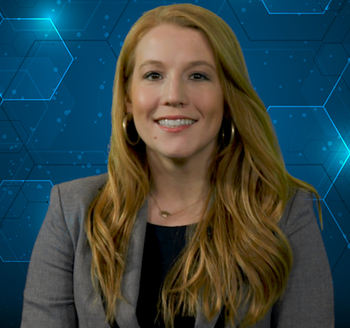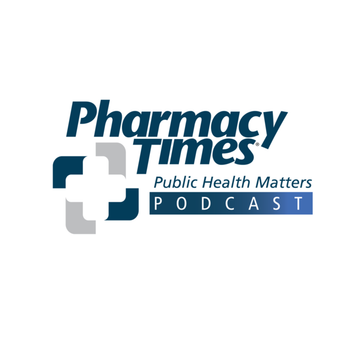
Naveen Mansukhani, BPharm, National Operations Director for Cardinal Health Retail Pharmacy Services, discussed how he is celebrating American Pharmacists Month.

Naveen Mansukhani, BPharm, National Operations Director for Cardinal Health Retail Pharmacy Services, discussed how he is celebrating American Pharmacists Month.

Laura Akers, PharmD, RPh/CPh, MBA, BCOP discusses the role of the pharmacist, how the pharmacy profession has changed, and what is to come in the field.

The manager of patient support services at St. Luke’s Cancer Center discusses the significance of Reaching Out for Healthy Women and how female patients can receive support from this initiative.

In addition to the annual flu vaccines, COVID-19 boosters and RSV vaccines present new opportunities for pharmacists to advise patients.

Craig Dolan, PharmD, MBA, BSPharm discusses the role of the pharmacist, how the pharmacy profession has changed, and what is to come in the field.

Expert explains how the role of pharmacists in myelofibrosis treatment has evolved significantly over the past decade.

Ryan Haumschild, PharmD, MS, MBA, leads drives a conversation surrounding the impact of CDK4/6 inhibitors in treatment of metastatic breast cancer.

A panel of medical experts begin a discussion surrounding key updates in treatment and management of HR+/HER2- metastatic breast cancer.

Ruben A. Mesa, MD, FACP, discusses the results of the SIMPLIFY-1 and MOMENTUM trials and how the data led to the approval of momelotinib to treat intermediate or high-risk myelofibrosis in adult patients with anemia.

Dr Moore provides a detailed summary of the scope and findings from the TROPiCS-02 study.

Pharmacists are experts at juggling shortages of all kinds, however, and L’Altrelli said they are crucial team members regarding opioid access challenges.

Heather Moore, CPP, PharmD, highlights key contributions from pharmacists in breast cancer treatment and identifies current unmet needs in the treatment landscape.

Pharmacist discusses the success of a unique employee-owned pharmacy model.

Christina Madison, PharmD, FCCP, AAHIVP, sat down with Ryan Haumschild, PharmD, MS, MBA, to discuss current issues in oncology.

Moving cannabis to Schedule 3 will make it easier to research, resulting in the development and creation of new cannabinoid-based pharmaceuticals, with notable potential in oncology.

The CEO of Yseop discusses how AI can have a positive impact in the development of high quality medical writing due to its efficiency and ability to reduce long, tedious tasks for writers.

There is lots of information about matters of women's health online, both true and untrue, but pharmacists remain a credible source for educating women about health matters.

Generative artificial intelligence is a type of self-learning software that can increase the time pharmacists can allocate to patients, improve medication adherence, and allow patients to access health data on a whim.

“I've never met a pharmacist who didn't want to improve the health of the American people. That's what they're doing and will be doing well in the future,” Steven C. Anderson tells Pharmacy Times at NACDS TSE, August 12 through 14, 2023, San Diego, California.

The Community Leadership Award is presented to a pharmacy demonstrating community leadership and involvement, inspiring others, and going above and beyond to make their community a better place to live.

Experts Christina Madison, PharmD, FCCP, AAHIVP, and Joy Hoover, founder of Esōes Cosmetics, sat down to discuss how cosmetics can empower users of all genders.

Experts discuss the social determinants that can affect the rates of flu immunizations and strategies to boost immunization rates.

Chad Worz, PharmD, BCGP, FASCP, and the panel review the NUDGE-FLU Trial and discuss the study design, outcomes, and how similar nudges can be incorporated into practice.

Cost considerations for the rollout of new pneumococcal vaccines are discussed by a panel of medical experts.

Dr Schaffner underscores the significance of multidisciplinary teams in the effort to optimize vaccination rates for pneumococcal disease.

An expert panel reviews the signs of vaccine hesitancy and how pharmacists can address patient concerns.

The launch of adalimumab biosimilars are expected to affect spending in the immunology space.

Expert weighs in on the growth of specialty drug spending, particularly with drugs in immunology, neurology, and weight loss.

Pharmacists can improve patient access to both healthful foods and necessary medicines as a continuum of care in underserved communities.

Jennifer Chesak, author of The Psilocybin Handbook for Women, discusses how estrogen can affect binding at the serotonin receptor sites, causing psilocybin to impact women’s bodies differently.